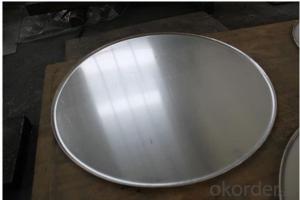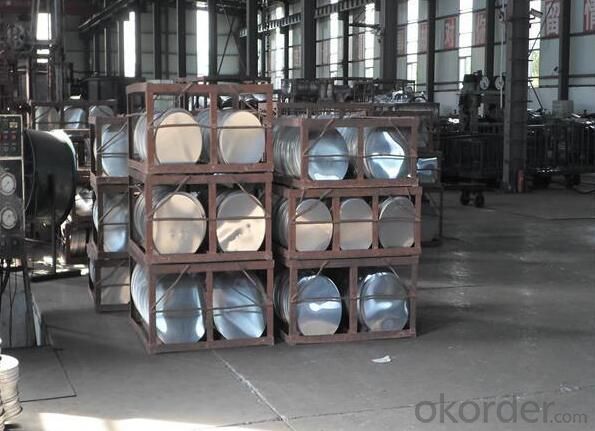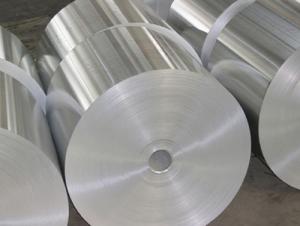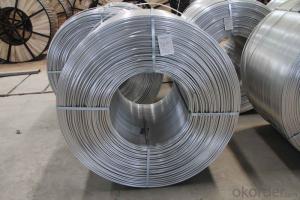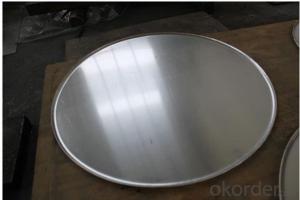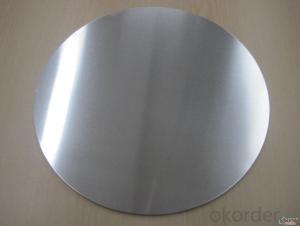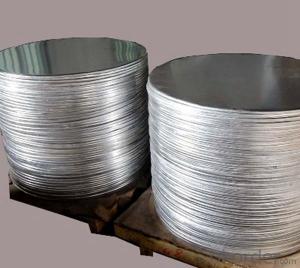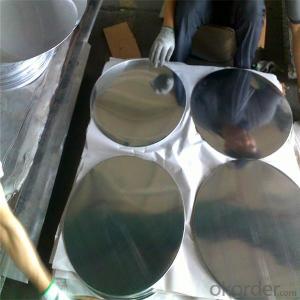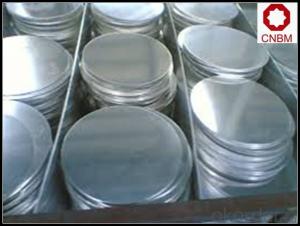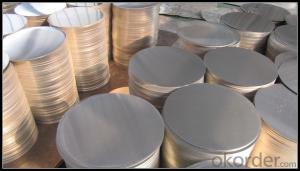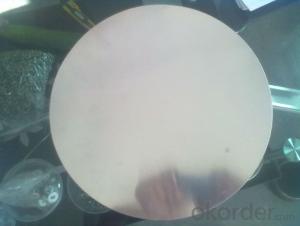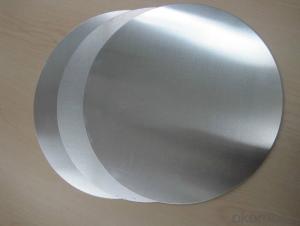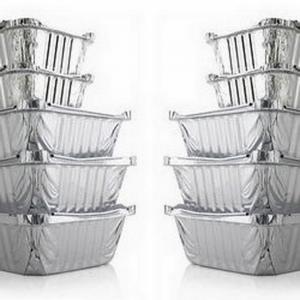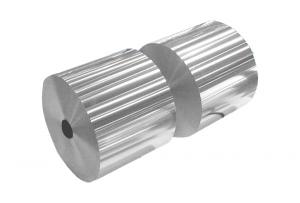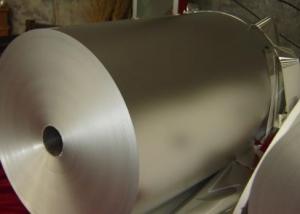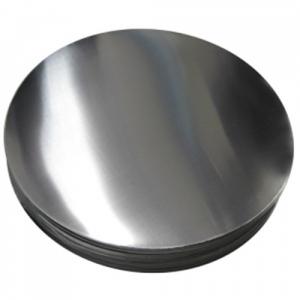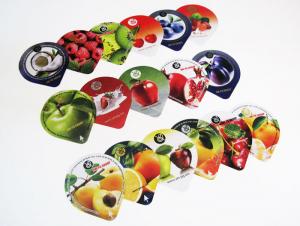Aluminum DC Aluminium Circle 1100 for Cooking Utensils
- Loading Port:
- Shanghai
- Payment Terms:
- TT OR LC
- Min Order Qty:
- 5 m.t.
- Supply Capability:
- 1000000 m.t./month
OKorder Service Pledge
OKorder Financial Service
You Might Also Like
Specification
1.Structure of DC Aluminium Circle 1100 for Cooking Utensils Description
• Product: Aluminim Circle
• Application: It is used in cookware, engineering, lighting purpose, fried pans, non-sticky pans, cooking pots, kettles, hard anodize cook wire, pressure cooker and house hold utensils, reflector of the light, etc
• Advantage: Deep drawing and hard anodizing quality Aluminum Circle Sheet can be supplied. Our Aluminum Circle is RoHS and REACH compliance and uses well-protected packing. Our circles are excellent material for producing cookware, utensil, pots, pans and kettles.
2.Main Features of the DC Aluminium Circle 1100 for Cooking Utensils
• High manufacturing accuracy
• Smooth surface
• No waves
• High strength of extension and yield
• Well packaged
3.DC Aluminium Circle 1100 for Cooking Utensils Images
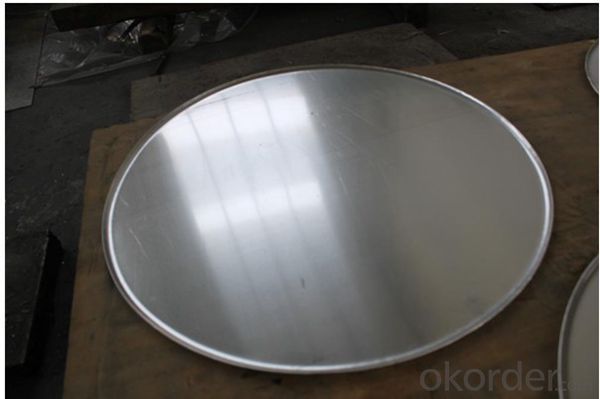
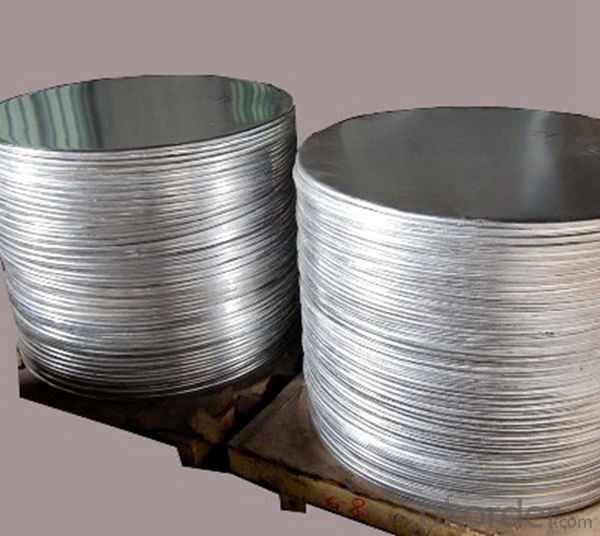
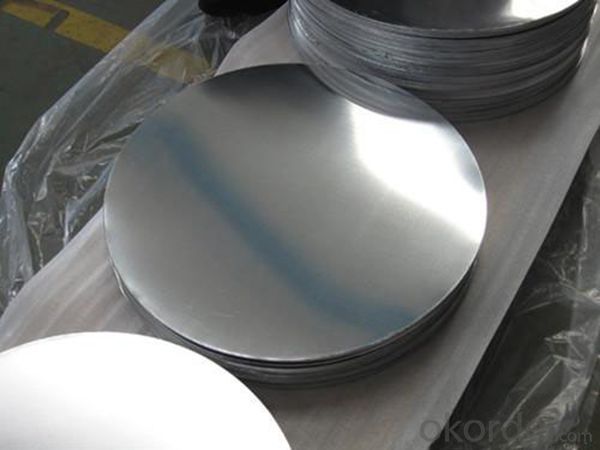
4.DC Aluminium Circle 1100 for Cooking Utensils Specification
Alloy | AA1050,AA1060,AA1100 AA3003etc. |
Temper | O,H14 |
Thickness | 0.5MM-4MM |
Diagonal | 100-1200MM |
Standard | GB/T 3880-2006 |
5.FAQ of Hot Rolled aluminum disc for cookware
We have organized several common questions for our clients,may help you sincerely:
①How about your company?
A world class manufacturer & supplier of aluminum coil and alloy blanks. Aluminum production base is comprised of 18 aluminum annealers, 10 coil and foil mills, 4 continuous production lines, 2 hot rolling production line and 3 prepainted lines.
Export 5000 tons per month to Asia, America and Middle East. Always do the best for our clients.
②Can you guarantee the quality of the products?
We are responsible for the quality of materials to get a long-term cooperation with clients in a reasonable period of time and we are glad to arrange and coordinate any third party inspection for you.
③What is the delivery time after purchase?
35 day after receiving client’s deposit or correct LC
5.Quality contral:
1. Professional Quality Control Team
v Inspecting ingot before melting
v Inspecting aluminium coil stock before cold rolling
v Inspecting finished goods before package
v Inspecting package, loading before shipment
2. Guaranteed by ISO 9001:2008 (SGS)
3. Guaranteed by FDA, EN 602, TPCH etc
- Q: Is there a new technology available for recycling aluminum?
- <p>Yes, new technologies are being developed and implemented for recycling aluminum more efficiently. One such technology is the use of advanced sorting systems that can separate different types of metals, including aluminum, from waste streams. Additionally, there are innovations in the smelting process that reduce energy consumption and emissions. For instance, some companies are using inert anodes in the electrolytic process to produce aluminum, which can significantly lower the carbon footprint. These advancements not only make aluminum recycling more environmentally friendly but also more economically viable.</p>
- Q: This question asks about the energy consumption involved in the manufacturing process of an aluminum can.
- <p>The energy required to process and produce an aluminum can varies based on factors like production scale and technology used. On average, it takes about 70-90 kilowatt-hours (kWh) of energy to produce a single aluminum can. This includes the energy for mining bauxite, refining it into alumina, smelting it into aluminum, and finally, manufacturing the can. The energy consumption is significantly lower compared to producing cans from other materials like steel or plastic, which makes aluminum cans more energy-efficient.</p>
- Q: Is the accumulation of aluminum in the body harmful to health?
- <p>Aluminum buildup in the body has been a subject of concern, particularly in relation to Alzheimer's disease. While aluminum is naturally present in the environment and is used in various products, including food packaging and cookware, there is no strong scientific evidence to support the claim that aluminum exposure or accumulation causes health problems in humans. The World Health Organization and other health authorities have stated that aluminum intake from food and drinking water is not a significant health risk for the general population. However, it is always recommended to follow good hygiene practices and use cookware that is known to be safe for food preparation to minimize any potential risks.</p>
- Q: Explain how the use of aluminum contributes to global warming in a few sentences.
- <p>The use of aluminum significantly affects global warming due to the energy-intensive process required to extract it from bauxite ore. The production of aluminum releases large amounts of greenhouse gases, particularly carbon dioxide, which contribute to global warming. Additionally, the electricity used in aluminum production often comes from fossil fuels, further exacerbating the issue. Moreover, aluminum is lightweight and durable, leading to increased demand, which in turn drives up production and emissions. The recycling of aluminum is crucial to mitigate its environmental impact, as it requires only 5% of the energy needed for primary production, significantly reducing carbon emissions.</p>
- Q: Is it possible to utilize aluminum in the manufacturing process of solar panels?
- <p>Yes, aluminum is indeed used in the production of solar panels. It is primarily employed as a component of the frame that supports and protects the panel. Aluminum's light weight, high strength, and corrosion resistance make it an ideal material for this purpose. Additionally, aluminum can be used in the backsheet of the solar panel, providing structural support and helping to protect the panel from environmental factors. However, aluminum is not used in the actual photovoltaic cells that convert sunlight into electricity; those are typically made from silicon.</p>
- Q: Is it safe and practical to use pure aluminum foil for wrapping food for storage?
- <p>Yes, you can use pure aluminum foil to wrap food for storage purposes. Aluminum foil is widely used for its excellent barrier properties against air, moisture, and light, which helps to preserve food freshness and prevent spoilage. It's also heat resistant, making it suitable for both refrigeration and cooking applications. However, ensure the foil is food-grade and avoid using it with acidic or salty foods as these can cause a reaction with the aluminum. Always follow the manufacturer's guidelines for safe use.</p>
- Q: What are the typical applications for aluminum sheet metal?
- <p>Aluminum sheets are versatile and have numerous applications due to their lightweight, corrosion resistance, and strength. Some common uses include construction for roofing and siding, automotive parts such as body panels and heat sinks, packaging for food and beverages, aerospace for aircraft components, and in the manufacturing of electronic devices due to its good thermal conductivity. They are also used in signage, furniture, and various decorative applications.</p>
- Q: Is it safe and effective to use aluminum foil for wrapping food items in a refrigerator or freezer?
- <p>Yes, you can use aluminum foil to wrap food in a refrigerator or freezer. Aluminum foil is a good insulator and can help keep food fresh by preventing freezer burn and moisture loss. It also protects food from absorbing odors. However, it's important to ensure the foil is tightly wrapped around the food to maintain its effectiveness. Additionally, avoid using aluminum foil with acidic foods as it can react with them, potentially causing a metallic taste.</p>
- Q: Is it possible to enhance the efficiency of solar panels by utilizing aluminum?
- <p>Yes, aluminum can be used to improve the efficiency of solar panels. Aluminum is lightweight, corrosion-resistant, and has good thermal conductivity, which can help in dissipating heat and maintaining optimal operating temperatures for solar cells. It is also used in the manufacturing of solar panel frames, providing structural support while reducing the overall weight of the panels. Additionally, some research suggests that using aluminum in the backsheet of solar panels can enhance their durability and efficiency. However, the extent of efficiency improvement depends on various factors, including the specific design and manufacturing process of the solar panels.</p>
- Q: Is it possible to utilize aluminum in car manufacturing to enhance fuel efficiency?
- <p>Yes, using aluminum in car manufacturing can contribute to increased fuel efficiency. Aluminum is lighter than traditional steel, which can reduce the overall weight of a vehicle. A lighter car requires less energy to move, which can lead to better fuel economy. Additionally, aluminum has good strength-to-weight ratio, allowing for a strong yet lighter structure. However, it's important to note that while aluminum can enhance fuel efficiency, it also has higher manufacturing costs and may not be as recyclable as steel.</p>
Send your message to us
Aluminum DC Aluminium Circle 1100 for Cooking Utensils
- Loading Port:
- Shanghai
- Payment Terms:
- TT OR LC
- Min Order Qty:
- 5 m.t.
- Supply Capability:
- 1000000 m.t./month
OKorder Service Pledge
OKorder Financial Service
Similar products
Hot products
Hot Searches
Related keywords
